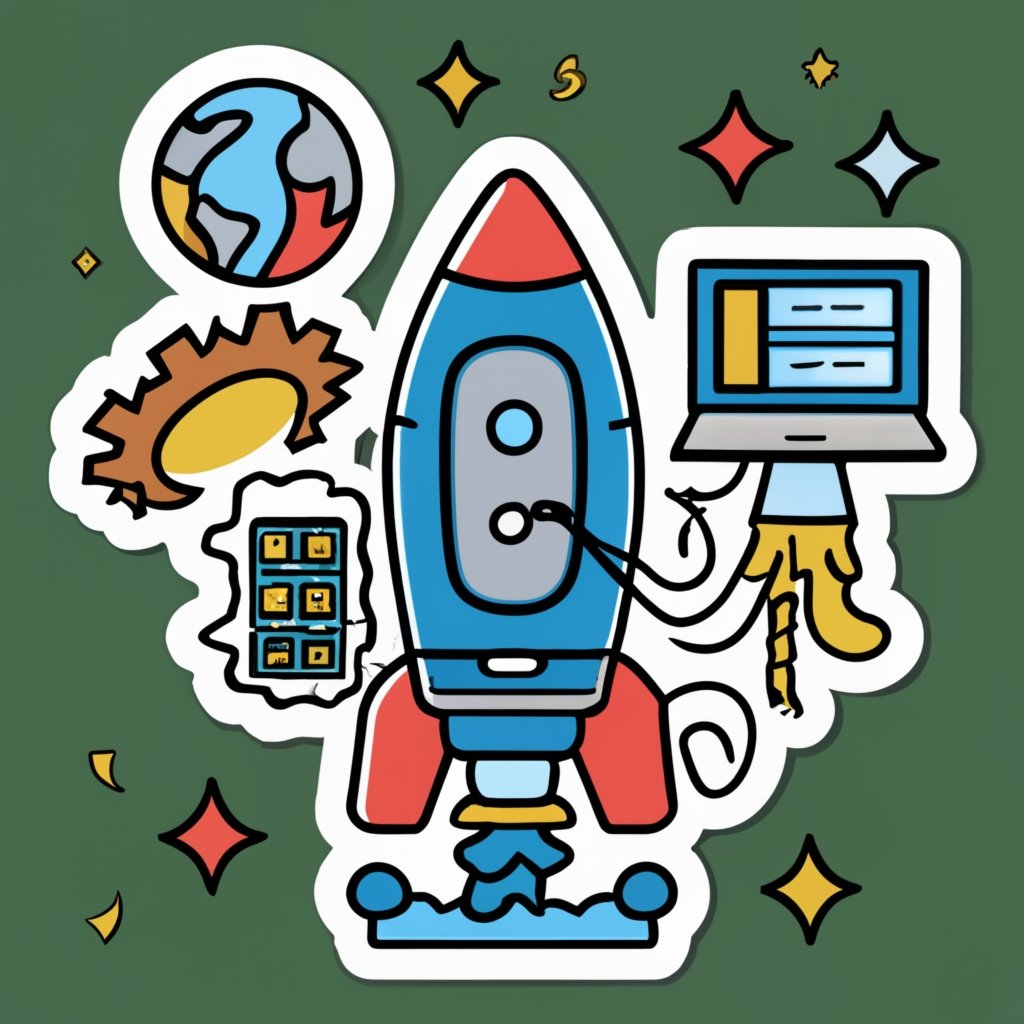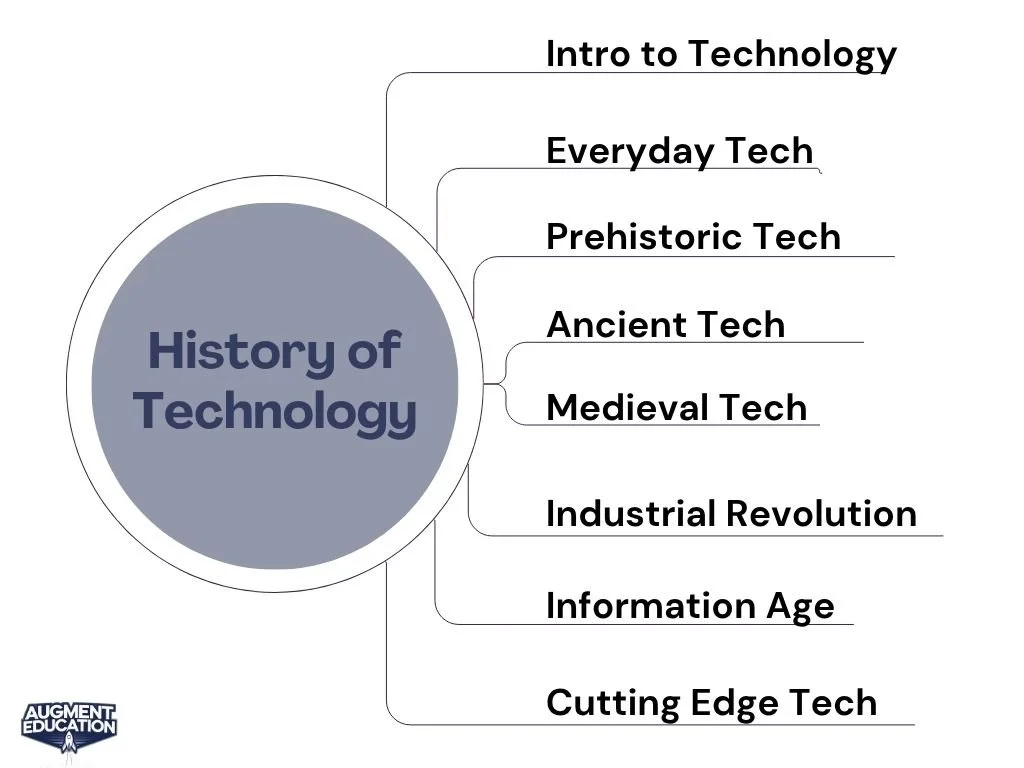1. How did early humans use tools to adapt to their environment?
2. What were some of the earliest forms of communication before the invention of writing?
3. How did the invention of the wheel revolutionize transportation and technology?
4. What role did the printing press play in spreading information and knowledge during the Renaissance?
5. How did the Industrial Revolution change the way people lived and worked?
6. What were some of the key inventions that led to the development of the electrical era?ream it
7. How did the invention of the telegraph impact long-distance communication?
8. What motivated inventors like Thomas Edison and Nikola Tesla, and how did their contributions shape modern technology?
9. How did the invention of the telephone change the way people connected with each other?
10. What were the major technological advancements during the late 19th and early 20th centuries?
11. How did the invention of radio and television transform entertainment and information sharing?
12. What role did computers play during World War II, and how did they evolve after the war?
13. How did the invention of the internet impact global communication and information access?
14. What is the significance of the development of mobile phones and their evolution into smartphones?
15. How did the space race lead to advancements in technology and exploration beyond Earth?
16. How has medical technology evolved over time, and what impact has it had on healthcare?
17. What are the environmental impacts of technological advancements, both positive and negative?
18. How have social media platforms changed the way people communicate and share information?
19. What is artificial intelligence (AI) and how has it been integrated into various aspects of our lives?
20. How do renewable energy technologies, like solar and wind power, contribute to sustainable living?
21. What ethical considerations arise from the use of emerging technologies like genetic engineering and nanotechnology?
22. How does the concept of "smart cities" incorporate technology to improve urban living?
23. What are the potential benefits and challenges of autonomous vehicles in terms of transportation and safety?
24. How has the gaming industry evolved from early arcade games to modern virtual reality experiences?
25. In what ways have advancements in biotechnology and medical research contributed to improving human health and longevity?
1. How did early humans use tools to adapt to their environment? 2. What were some of the earliest forms of communication before the invention of writing? 3. How did the invention of the wheel revolutionize transportation and technology? 4. What role did the printing press play in spreading information and knowledge during the Renaissance? 5. How did the Industrial Revolution change the way people lived and worked? 6. What were some of the key inventions that led to the development of the electrical era?ream it 7. How did the invention of the telegraph impact long-distance communication? 8. What motivated inventors like Thomas Edison and Nikola Tesla, and how did their contributions shape modern technology? 9. How did the invention of the telephone change the way people connected with each other? 10. What were the major technological advancements during the late 19th and early 20th centuries? 11. How did the invention of radio and television transform entertainment and information sharing? 12. What role did computers play during World War II, and how did they evolve after the war? 13. How did the invention of the internet impact global communication and information access? 14. What is the significance of the development of mobile phones and their evolution into smartphones? 15. How did the space race lead to advancements in technology and exploration beyond Earth? 16. How has medical technology evolved over time, and what impact has it had on healthcare? 17. What are the environmental impacts of technological advancements, both positive and negative? 18. How have social media platforms changed the way people communicate and share information? 19. What is artificial intelligence (AI) and how has it been integrated into various aspects of our lives? 20. How do renewable energy technologies, like solar and wind power, contribute to sustainable living? 21. What ethical considerations arise from the use of emerging technologies like genetic engineering and nanotechnology? 22. How does the concept of "smart cities" incorporate technology to improve urban living? 23. What are the potential benefits and challenges of autonomous vehicles in terms of transportation and safety? 24. How has the gaming industry evolved from early arcade games to modern virtual reality experiences? 25. In what ways have advancements in biotechnology and medical research contributed to improving human health and longevity?
Learning the history of technology provides a deeper understanding of the world. By studying the evolution of technology, students gain insights into the progress made by previous generations, highlighting the ingenuity and perseverance required to overcome challenges.
Through the lens of technology's past, students grasp the immense efforts that went into developing the tools and devices we often take for granted today. Illustrate the incredible advancements that have shaped our lives to foster a sense of curiosity and wonder about the possibilities of the future.
Understanding the historical context of technology allows students to critically analyze its impact on society and can help to foster a sense of curiosity and wonder. Learning about how technology has shaped human interactions, economies, and cultural practices throughout history can help students navigate the complex world around them and acts as a safeguard against blindly adopting technological advancements without considering their implications.
Technology is never static; it is constantly evolving and improving. This understanding instills a growth mindset in young learners, encouraging them to embrace challenges and always seek new ways to improve and innovate.
Get anytime access to our History of Technology curriculum, which is just one of the courses in the Intro to Technology (K-8) collection. This course covers the past milestones of technology along with modern-day progress and includes individualized options for a variety of lessons.
-
Inquiry-based
stoke curiosity & critical thinking
Students answer their own questions through demonstrable assignments that challenge them to discuss, research, and debate topics. New discoveries fuel additional exploration towards mastery and becoming a subject matter expert.

-
Individualized
encourage ownership & fulfillment
Personalized projects with multiple pathways highlight individual contributions within the context of a classroom, a community, and the world. Students navigate and progress at their own pace, with teacher guidance, while mapping their own progress throughout the curriculum.

-
Portfolio-Building
a growing body of work
Make learning visible. A portfolio illustrates learning outcomes and carries over year after year to build the foundations for real-world work while demonstrating continued growth and subject matter expertise. Showing vs. telling.

-
Aligned
with national standards
Content and curriculum is adaptable and aligns with national standards set forth by ISTE. Surpass state requirements with the most relevant technology education pathway possible.

